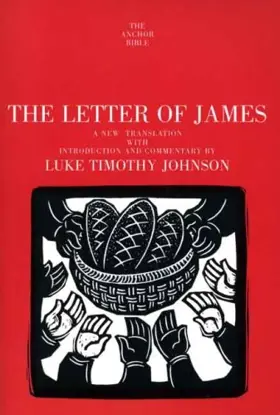

The Letter of James
Pages
432
Publisher
Yale University Press
Published
1995
ISBN-13
9780300139907
The Letter of James is one of the most significant, yet generally overlooked, New Testament books. Because Martin Luther, leader of the Protestant Reformation, disliked this letter for its emphasis on good deeds, the book has come to be viewed as being in opposition to Paul’s letters, which emphasize faith in God. To correct these and other misperceptions about James, Luke Timothy Johnson embarks on an unprecedented history of the interpretation of this pivotal letter, highlighting the vast appreciation for James over the centuries.
Johnson boldly identifies the first-century author as none other than James, the brother of Jesus Christ. While modern skepticism casts doubt on this conclusion, early textual witnesses, as well as saints and scholars throughout the centuries, corroborate Johnson’s position.
A thorough examination of the original-language texts and an explanation of the literary context of James help illuminate the original meaning of the letter. Johnson’s sensitivity to both the biblical text and the sensibilities of the modern reader, coupled with his convincing scholarly presentation, set this apart as one of the premier commentaries on James for present and future generations.
Collections
This book appears in the following featured collections.
- Favorite Advanced NT Commentaries by Jeremy Pierce (parableman)
- D. A. Carson's Commentary "Best Buys" by D. A. Carson
- Ultimate Commentary Collection: NT Technical by John Glynn
- New Testament Advanced Commentaries by Moore Theological College Journal: Societas
- Building an NT Commentary Library by Invitation to Biblical Interpretation (Kostenberger & Patterson)
- The Pastor’s Bookshelf by Scot McKnight
- New Testament Commentaries & Monographs by Princeton Theological Seminary
- Recommended New Testament Commentaries for Evangelical Pastors by Thomas R. Schreiner
- Commentaries by Roman Catholic Scholars by John Dyer
Reviews
Commentary by a moderate, independently-minded Roman Catholic scholar. Argues for the unity of the epistle, its early date and authorship by the historical James, and against the claim that James and Paul conflicted over faith and works.
[Full Review]
In 2014 I preached through the book of James. I was mainly using 4 commentaries; Johnson, McKnight, Davids, and Moo. How this commentary is currently ranked below Moo is beyond me. Johnson's treatment is a very very close second for me on James (McKnight has a very slight edge). Johnson's introduction is the most thorough of any commentary I've interacted with, and capably defends the authenticity, unity and early setting of James. He covers in detail the history of the Fathers' interaction with James, and among his many contributions to Jacobean studies is the noting of commonalities to Clement. This is a fine contribution on James, deserving of a higher ranking in my opinion.
Johnson’s commentary replaced the rather slender volume by Bo Reicke (remarkable for including the epistles of Peter and Jude in a mere 221 pages!) By contrast, Johnson’s commentary begins with 164 pages of introduction to the letter of James alone. In fact, the introduction is worth the price of the book. I find his description of the similarities and differences between Paul and James helpful, concluding that the contrast is distorted by focusing on a single topic (justification by faith). Johnson dates the book early, written by a Jewish Christian in Palestine who had access to an early form of Jesus tradition (perhaps Q). The introduction has a long section on history of interpretation, asking the question, “How was the voice of James heard” by the church?” The commentary itself is based on the Greek text, but all Greek is transliterated. All citations in the commentary portion are in-text. Johnson draws parallels to Second Temple Period Jewish literature as well as Greco-Roman moralists. As with most of the recent volumes in the Anchor series, John includes detailed bibliographies at the end of each section, including German and French scholarship.
[Full Review]
The Anchor Bible by LT Johnson is loaded with delicate observations about word studies as he examines James in his Greco-Roman context.
[Full Review]







